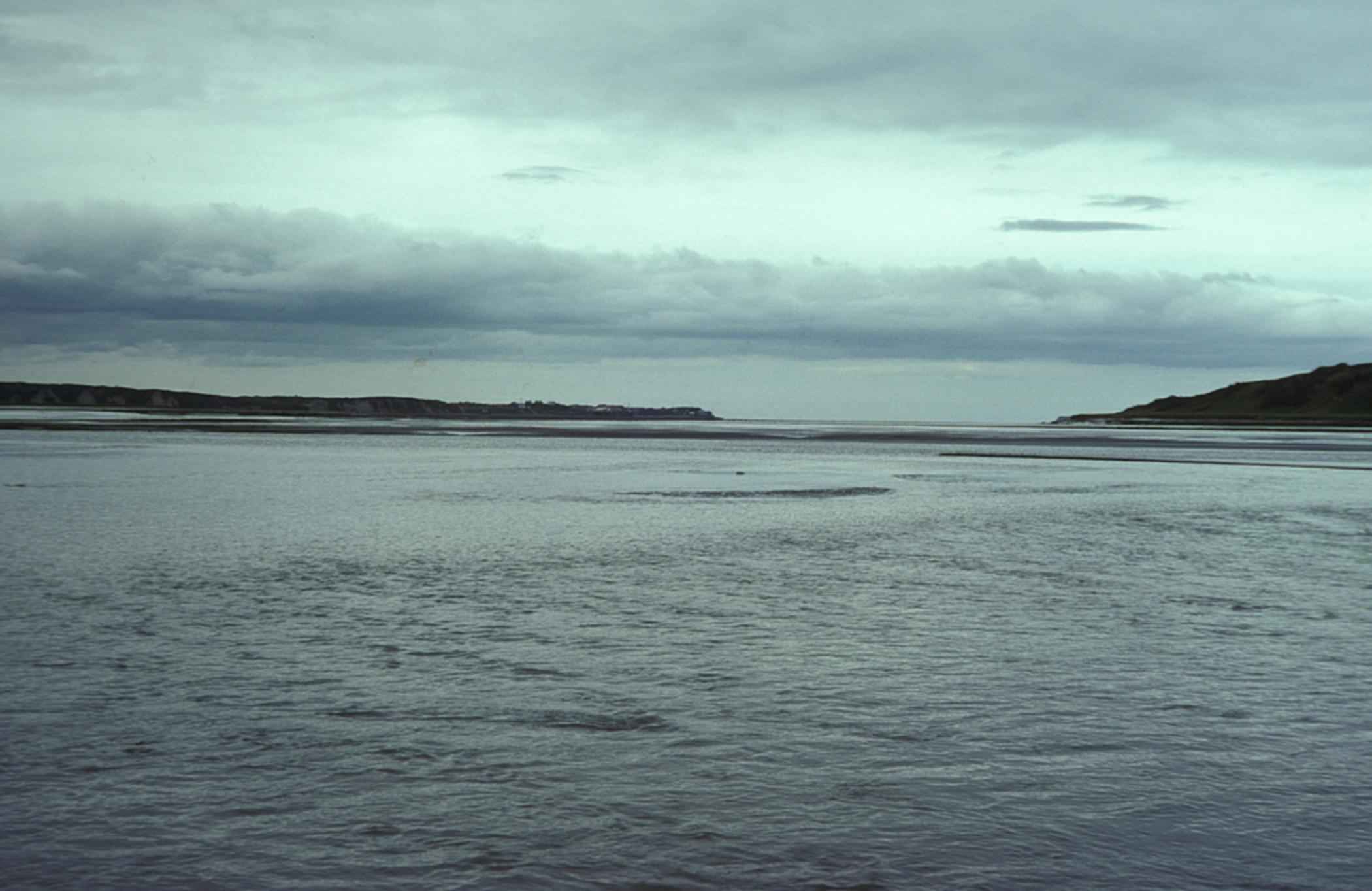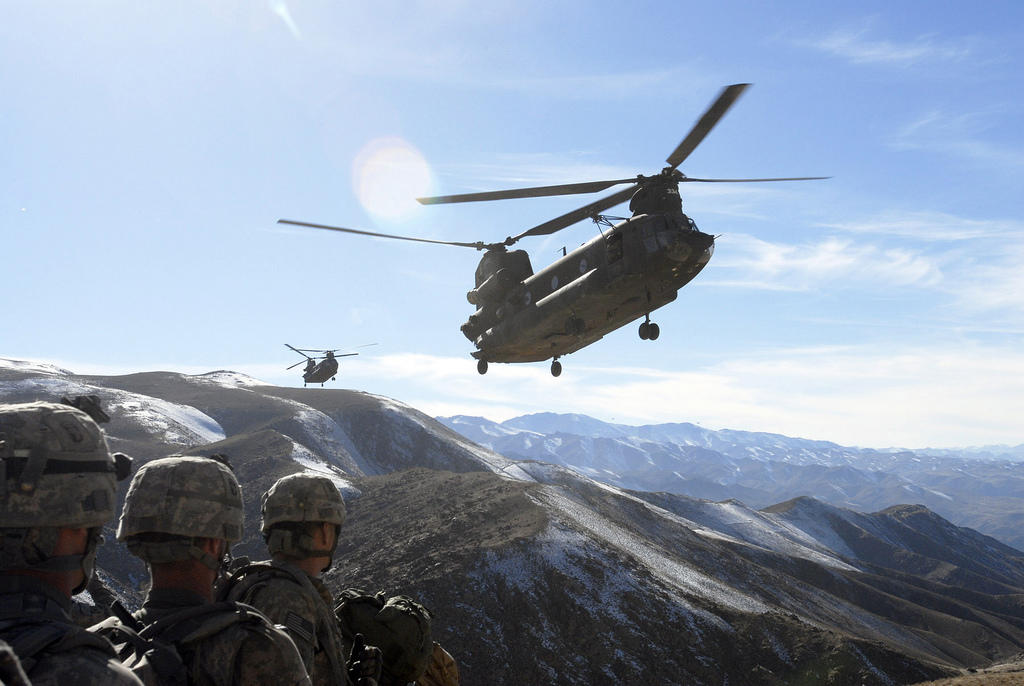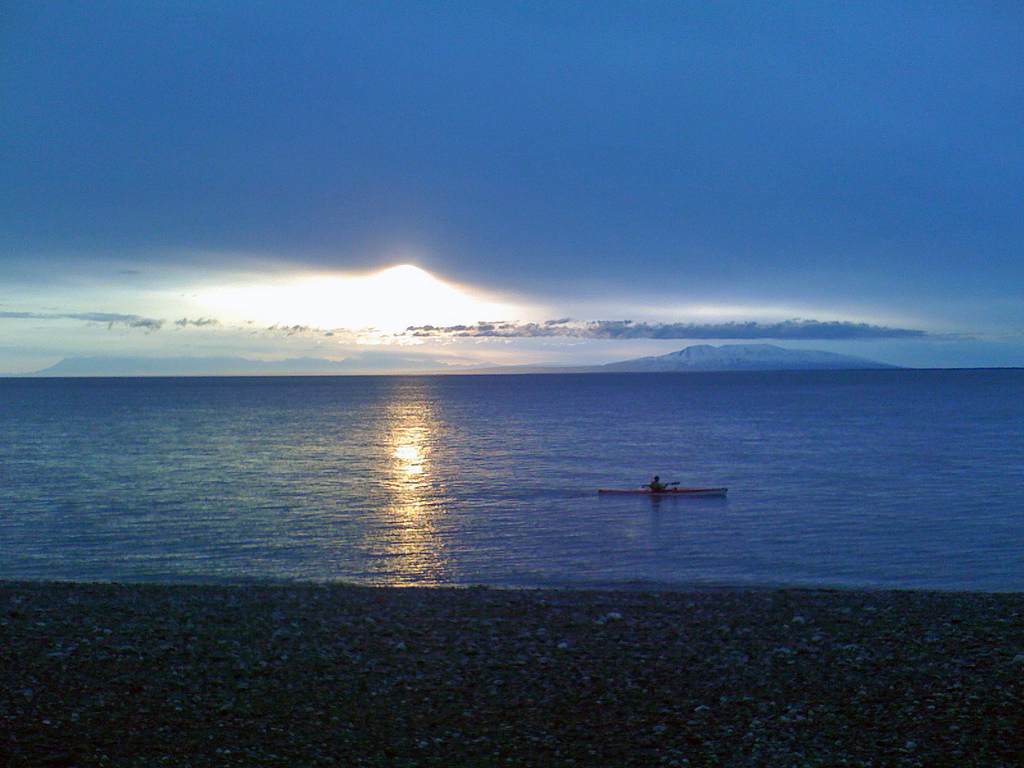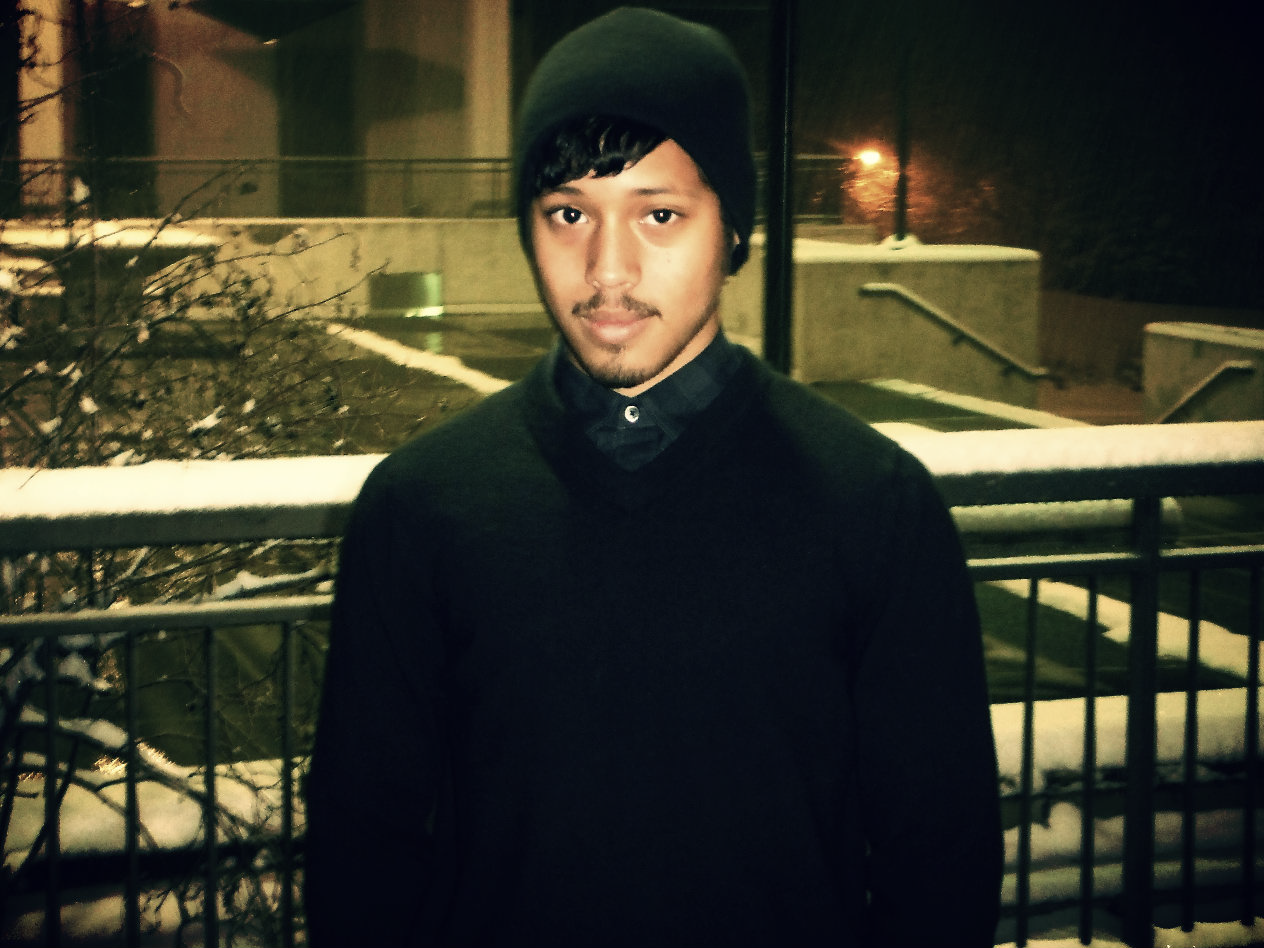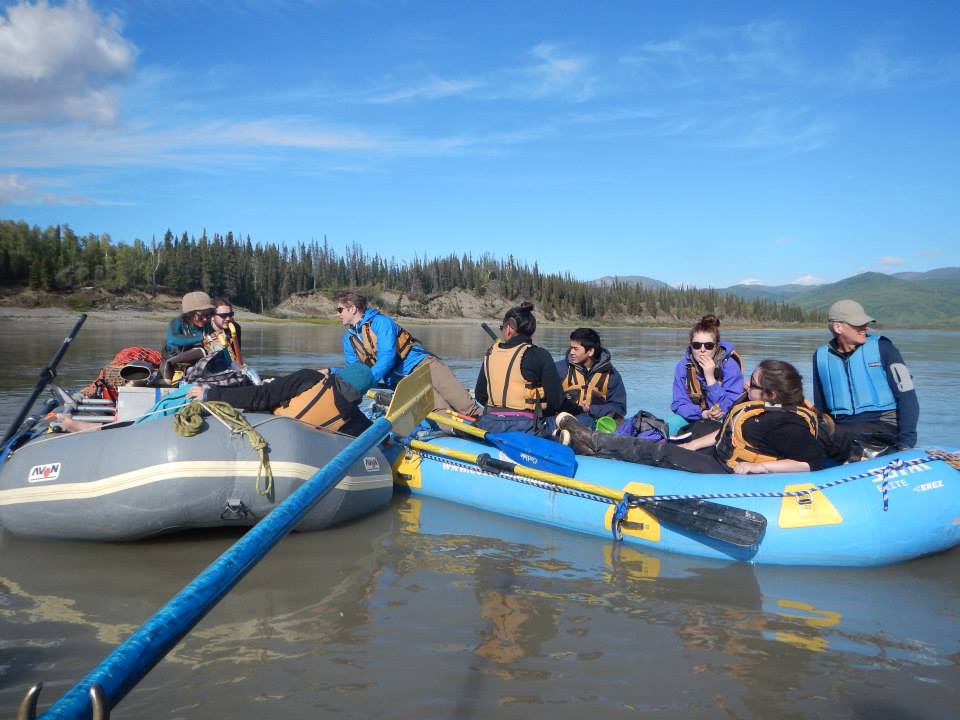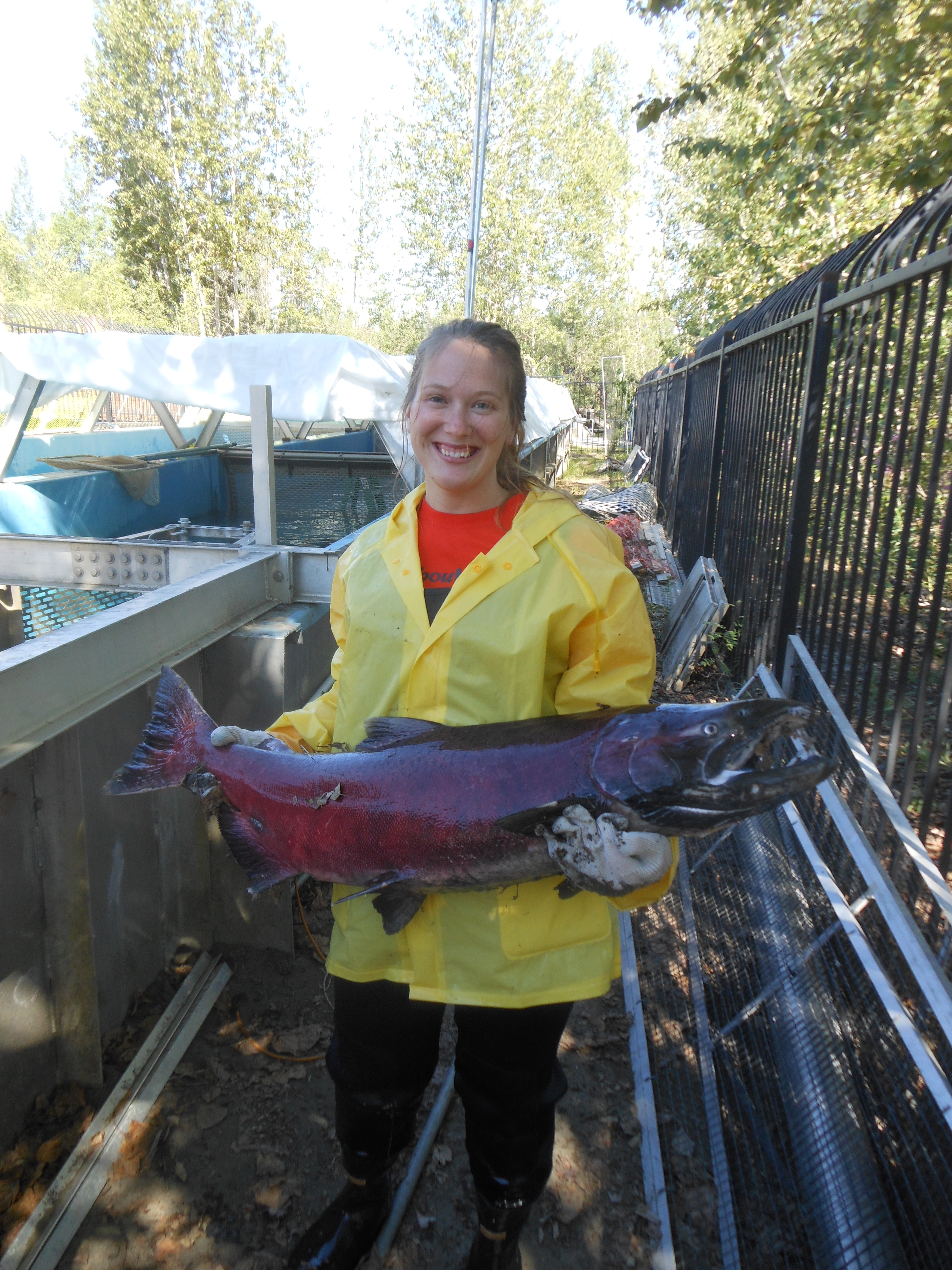By Jenn Baker
We soared over great volcanoes in the Aleutian Range. From my peephole, I watched the land ripple off into grassy tundra. I took a breath. I could do this. I could live, survive, on my own.
We landed on the runway in King Salmon. I walked out on the tarmac into a rough looking building, into a large white-walled room, its rows of orange vinyl chairs split to the foam, leading to large shabby check-in desks for the post-apocalypse.
The commercial fishermen had followed the Salmon migration north to King Salmon, on the banks and flats of Bristol Bay. They stayed in town or flew out to the beach in red-striped Bush planes with Grant Aviation. The one-room airport filled with coolers, backpacks, boxes, totes, suitcases, duffel bags and people, all weighed like fruits and vegetables, so weight is distributed properly pre-flight.
King Salmon has one spine of a road; the “town,” a few buildings sprawled out—a real game of connect the dots. The day dragged on and the heat infected everyone with drowsiness. I lay down on the onion-pizza smelling carpet and tried to sleep off the six hours our crew would have to wait. Although, whenever I heard the arrival of a plane, my ears tuned into the yelling of names that would be on the departing plane. With so many people and so few planes with room, there were no promises of getting people to the beach before their anger escalated.
***
Names were called, bags were collected and nine people left King Salmon for Egegik, five of those people where Alan West’s crew headed for Big Creek. One of those five was an over-excited girl with no rational idea of what she was getting herself into.
I clambered upon a Bush plane for the first time. My legs shaking a bit with fear and excitement, I walked up the ladder and into my tiny seat beside the window. Even though I could feel the plane rumbling under my feet, hear the wind try to tear us from the sky and see the hundreds of lakes spread out across the tundra.
The land was laid out like a map expressing the contours of terra firma. Tundra grass and ancient saplings prevailed against the prosperous force of the wind that ran over the ocean and across miles of desolate wilderness. The plane bounced as the wind swatted us. Below, shacks of all colors and sizes relaxed among the sand dunes above the flats of the beach. Landing on the beach, people trickled off the plane so that it could be choked with the weight of boxed Salmon.
We headed into the camp at Big Creek in the bed of a pickup truck, crouched between tools and machinery. My new home for the next six weeks was a large red box at the end of the dirt road teetering on the edge of a civilization that only lasted the season. I had landed in a different world. Cabins rested within the folds of the ever-changing sand dunes overlooking the flats. The industry buildings sat as the only evidence of our endeavors. Planes landed noisily on the strand of sandy beach, one after another. Smoke rose from the pile of burning trash. Time moved in tune with glaciers.
***
The announcement of our open fishing times marked the beginning of the fishing season in the district of Egegik. We prepared for our eight hour period. Screw anchors were driven deep in to the sand, like a corkscrew into a wine bottle. Nets were mended and “hanged”, bikes (four-wheelers) were taken out and tuned till their sound was steadfast.
***
I walked across the little sand mountains pushed by the tide. I yawned as the sun opened up one eye over the tundra horizon, waking everyone with its loud rays. Five thirty a.m. We pulled out the ropes and bollen-knotted them to the screw anchors. We bollen-knotted the ropes to the net. We stretched out the forty fathoms of net and freed it from folds and knots. I gazed at nets stretched out as translucent napkins on the shore’s lap. The sun rose higher, many of the camps still quiet.
Satisfied with our work on the nets, we drove back to the house for our second breakfast. At noon, when the tide retreated, we walked down out along the flats and “picked” the fish out of our nets. It is an art mastered through practice, untangling the slippery bodies through the way they had entered. Patience, I kept telling myself. Patience.
***
The waves kissed the shore. The smaller boats hugged it. We sped out over the rocks left by the tide on the “road” stretching from Big Creek across the Egegik river to the small town of Egegik.
The fog rolled in and covered the sand with a thin blanket. The sun did its best to keep us warm, but the breeze wouldn’t have it, whipping out over the water and raking its fingers of chill over the shore. But it kept away the mosquitoes that swarmed about us like sawdust thrown to the wind, crawling through my hair and biting my scalp, piercing my pants, trying their best to get a taste of me.
When I closed my eyes, the roar and rumble of the four-wheeler reminded me of my family and our family trips into the deep woods. The first week away from home, I always get homesickness in violent waves. But now I felt none of it. Why? Because I was working all the time? But when I was not working, I didn’t miss home. Was I finally growing up? Or was it because I found the smell of gear comforting, the effort of hard work consoling, and the expanse of the wilderness a familiar friend?
There is a certain comfort here, especially with the fact that I am not so far out of my comfort zone. Sleeping in a cabin home, working in the same gear I have at home, in the same environment I had grown up in. Although the cabin I live in has many more luxuries than the cabins I stay at with my family. Here we wake before the tides to set the nets and wait with keen ears for the announcement over radios.
***
We had an opening on a 25 foot tide. The nets had to be snug to the beach. We loaded the net into the trailer behind my bike. Like I had been taught, I drove from one screw anchor to the other, tracing a line to follow when I dropped the net over a mud hole three pickup trucks in length and five pickup trucks across, between the small bump of the beach and the flats where the ocean came rushing in.. By now, it was a routine with the ring of the everyday. I connected one end of the net to the rope on the screw anchor and followed the tracks to the other screw anchor, letting the net fall out of the back of the trailer. I looked back, struck with dread. I had laid it wrong. It sat in the mud all bunched up, looking more like a large rope then a net. What could I do? A wet net in thick mud weighs about 300 pounds. And I was six feet short of meeting the screw anchor to attach the other end. A spew of curses fled my mouth.
I picked up the lead line or the “safe line” and pulled, my heels digging into the slick mud that bulged up around the edges of my sneakers. I stretched it out so the net was a smooth as a bed sheet and straightened the cork line along the side that will stay afloat when the tide comes rushing in. Starting at the connected end, I moved down the net pulling the net inches closer. As close as the net would come, I pulled the heavy rope laden with mud into it’s knot. I tossed the bowie out of the trailer, measured the rope by eye and pulled it into it’s knot.
I let my lungs contract and taste the air as I looked at the net stretched out over the mud, and watch the busy shadowed figures running their nets across the beach. I found peace in such a uncomplicated manner in this lifestyle, it gave time to realize how valuable my time was and that I was wasting it away on pesky details.
Wasting my youth with stress and deadlines, I had forgotten that my hands were clenched around dreams that I had outgrown.
***
I pulled on my still wet waders from yesterday, covered in sand. I put my sneakers on over the top, and pushed my hair into my wool hat. I pulled my raincoat over my jacket and pulled on my orange rubber gloves with my name in permanent marker.
The wind kicked up the sand and struck my face like sandpaper, but I only pushed the accelerator of the four-wheeler down more with my thumb to get to the water. Walking out into the tide, I worked my way to the net. I found the beginning of the cork line and I picked it up so I could find the lead line so I wouldn’t get my foot caught up in it and trip. With lead line in hand and Alan beside me, I pulled out the net as I walked down it.
A fish thrashed. I pulled the net toward me, bunching it my hands like pulling a skirt up until I gripped the fish, squeezing the gills with my thumb and index finger until I was confident enough to pick the net over its head. I took a quick look and hooked my pick into the net and pulled it over the fish’s head. I used to find their struggles unnerving, sad really—their golden eyes looking at me through the murky water, with no emotion. Letting the fish free from the net, I slit the blood line at the gills and threw it into the raft floating beside me.
This is how I “picked” fish all summer, in the whipping wind, pounding rain, with aching bones, and bruised skin.
[divider]
Jenn is an aspiring writer, who looks for time to scribble down life events as they pass. She looks for adventure in every opportunity presented–More things to write about too! As a persistent student seeking a college education, she currently has no hobby, but would like one.
